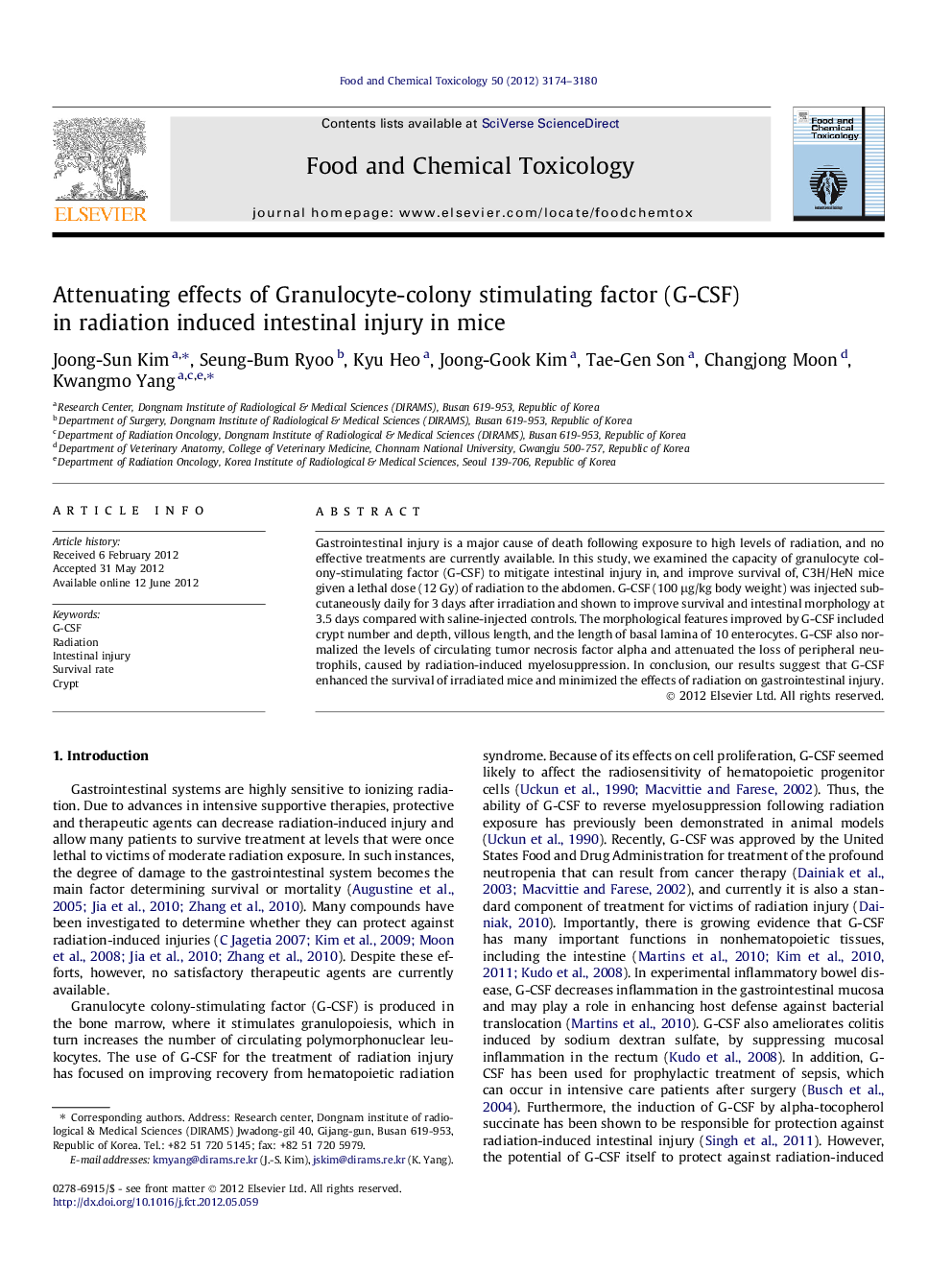| Article ID | Journal | Published Year | Pages | File Type |
|---|---|---|---|---|
| 5852220 | Food and Chemical Toxicology | 2012 | 7 Pages |
Gastrointestinal injury is a major cause of death following exposure to high levels of radiation, and no effective treatments are currently available. In this study, we examined the capacity of granulocyte colony-stimulating factor (G-CSF) to mitigate intestinal injury in, and improve survival of, C3H/HeN mice given a lethal dose (12 Gy) of radiation to the abdomen. G-CSF (100 μg/kg body weight) was injected subcutaneously daily for 3 days after irradiation and shown to improve survival and intestinal morphology at 3.5 days compared with saline-injected controls. The morphological features improved by G-CSF included crypt number and depth, villous length, and the length of basal lamina of 10 enterocytes. G-CSF also normalized the levels of circulating tumor necrosis factor alpha and attenuated the loss of peripheral neutrophils, caused by radiation-induced myelosuppression. In conclusion, our results suggest that G-CSF enhanced the survival of irradiated mice and minimized the effects of radiation on gastrointestinal injury.
⺠G-CSF not only attenuate radiation induced hematopoietic injury but also radiation induced intestinal injury. ⺠G-CSF lessens intestinal morphological change after radiation. ⺠G-CSF restored the levels of inflammatory molecules (IL-6, TNF-α, IL-17 and IFN-γ) after radiation. ⺠G-CSF increase the survival rate after radiation, associated with the attenuation intestinal injury.
